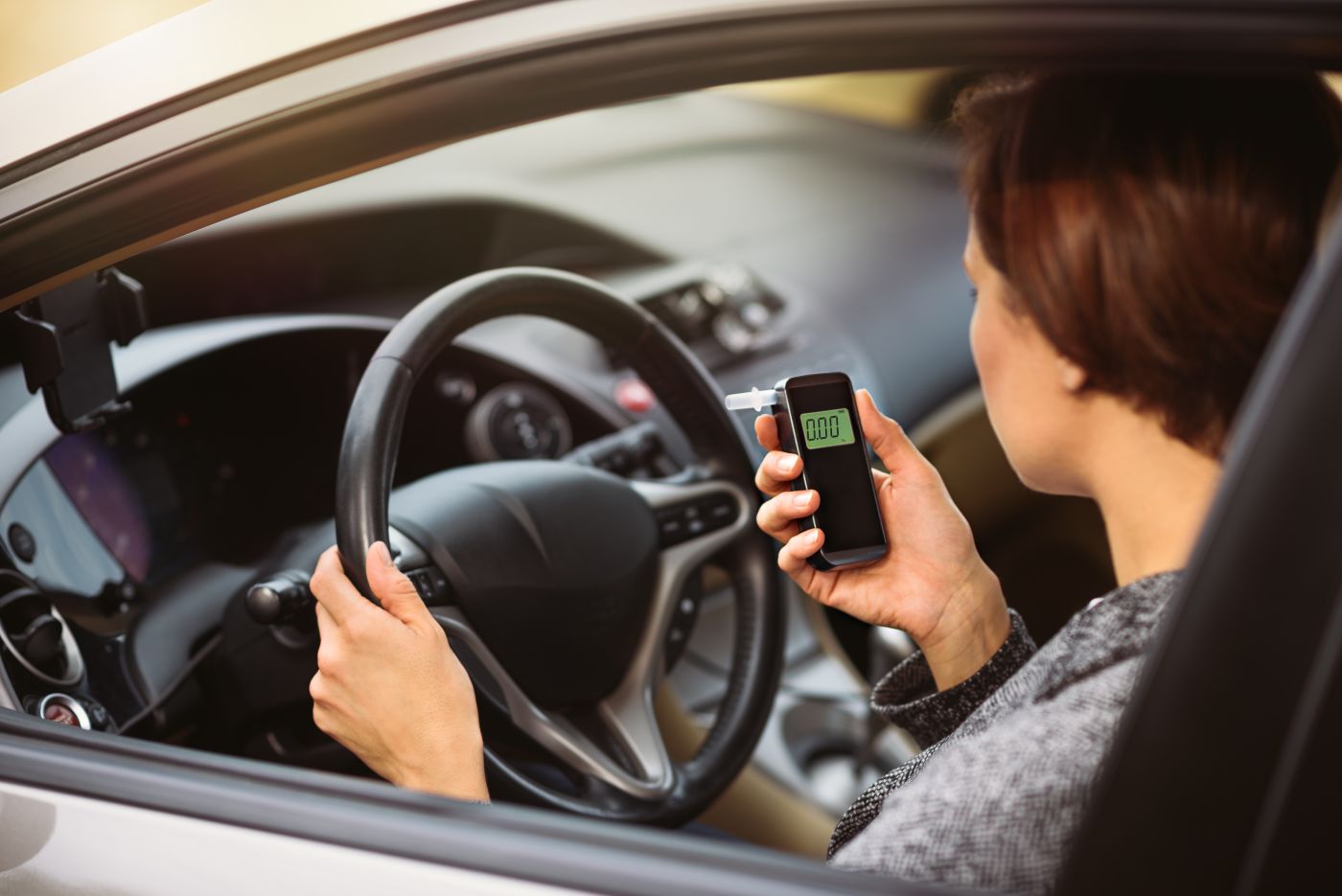
Being charged with a DUI can be a life-altering event, especially if the evidence against you includes a breathalyzer test result. The accuracy of breathalyzer tests isn’t always guaranteed, and there are numerous factors that can affect the results.
Our seasoned Utah DUI lawyer at Preston Day Law, PLLC understands the details involved in challenging the results of a DUI breathalyzer test.
If you believe that the breathalyzer test was inaccurate or improperly administered, there are several ways to challenge the results. We’ll explore common methods used to challenge DUI breathalyzer test results and how a skilled DUI attorney can help manage this process. Read on for more information on how you can protect your rights and mount an effective defense.
The Basics of a DUI Breathalyzer Test
A DUI breathalyzer test is designed to measure the alcohol content in a person's breath. It’s often used by law enforcement officers to determine if a driver is over the legal limit for blood alcohol concentration (BAC). However, this test isn’t foolproof, and various factors can lead to inaccurate readings.
It’s important to understand how these tests work before attempting to challenge the results. Breathalyzers operate based on the assumption that the alcohol in a person's breath is a reliable indicator of their BAC.
However, the machine may be affected by several factors, such as calibration errors, improper administration, or interference from other substances. Knowing the science behind the test can help you identify potential weaknesses in the results.
Common Causes of Breathalyzer Inaccuracies
Several factors can contribute to inaccurate breathalyzer readings, and understanding these causes is essential in challenging the results. These factors can range from issues with the machine itself to human error during the testing process.
Some key factors to keep in mind include:
Improper calibration: Breathalyzer devices must be regularly calibrated to secure accurate readings. If the machine isn’t calibrated properly, the results may be skewed.
Mouth alcohol: Residual alcohol in the mouth can interfere with the test, leading to falsely elevated BAC readings.
Medications and health conditions: Certain medications or medical conditions, such as acid reflux or diabetes, can cause the breathalyzer to register a false positive.
Environmental factors: Contaminants in the air, such as cleaning supplies or other chemicals, may also lead to inaccurate readings.
Understanding these potential issues can be helpful when discussing the results with your DUI attorney, who may request further testing or expert testimony to dispute the initial results.
The Impact of the Officer in Administering the Test
A key element in challenging DUI breathalyzer test results is examining the way the test was administered. The law requires that officers follow strict protocols when conducting breathalyzer tests, and any deviation from these procedures can cast doubt on the reliability of the results.
For example, the officer must make sure that the individual being tested hasn’t consumed any food or drink for a certain period before the test. Failure to adhere to this protocol could result in an inaccurate reading.
Additionally, the officer must properly operate the breathalyzer and allow the device to warm up before use. If these steps aren’t followed correctly, the results may be challenged in court.
Questioning the Calibration and Maintenance Records
Breathalyzer machines must be regularly calibrated and maintained to make sure that they provide accurate readings. If the machine isn’t calibrated or maintained according to the manufacturer's guidelines, the results can be unreliable.
Some key factors to keep in mind include:
Calibration records: The machine should have a log of calibration checks to prove that it was in proper working order at the time of your test.
Maintenance history: You should request records to show that the device was properly maintained and inspected regularly for accuracy.
Lack of documentation: If no records are available or the records are incomplete, this could be a significant issue that undermines the credibility of the test results.
In some cases, challenging the calibration and maintenance history of the device can result in the exclusion of the breathalyzer test results from the case.
Challenging the Training of the Officer
The accuracy of a breathalyzer test can also be compromised by improper training or lack of knowledge on the part of the officer administering the test. Law enforcement officers are required to undergo specific training on how to properly use breathalyzer devices, and their failure to follow these procedures can be grounds for challenging the test results.
It’s crucial to assess whether the officer conducting your test was properly trained and qualified to administer the breathalyzer. If the officer failed to follow correct procedures or lacked the necessary training, this could provide an opportunity for your DUI attorney to challenge the results in court.
Exploring Alternative Testing Methods
In some cases, a DUI breathalyzer test result may be contested by suggesting that alternative testing methods could provide more accurate results. For example, blood tests or urine tests may be requested to verify the results of the breathalyzer test.
Blood tests are generally considered more accurate than breath tests because they measure the actual alcohol content in the blood. If there’s a dispute over the breathalyzer results, requesting a blood test may be a viable option for challenging the evidence.
While blood tests aren’t infallible either, they provide a more reliable alternative that can be used to strengthen your case.
Legal Defenses for Challenging DUI Breathalyzer Results
There are several legal defenses that can be used to challenge the results of a DUI breathalyzer test in court. Your DUI attorney will help assess which defense strategy is best for your case based on the facts and evidence available.
Some key defense strategies to consider include:
Inaccurate machine calibration: If the machine was improperly calibrated or malfunctioning, the results may be deemed unreliable.
Improper administration of the test: If the officer didn’t follow proper procedures, the results could be challenged.
Health-related issues: If your medical condition contributed to an inaccurate reading, this may be a valid defense.
Environmental factors: If the test was administered in a location with chemical contaminants or other interfering substances, this could affect the test results.
Your DUI attorney will assess the strength of these defenses and determine the best course of action based on your case.
The Impact of Challenging a DUI Breathalyzer Test
Successfully challenging the results of a DUI breathalyzer test can have a significant impact on your case. If the court finds the test results to be unreliable or inadmissible, it may result in the dismissal of charges or a reduction in penalties.
In some cases, challenging the breathalyzer results may lead to a plea bargain or a favorable settlement. A skilled DUI attorney will analyze your case to determine the most effective strategy for challenging the evidence and securing the best possible outcome.
Contact Our Firm Today
If you’ve been charged with a DUI and are considering challenging the results of a breathalyzer test, consider reaching out to us. Our experienced DUI attorney will carefully review the details of your case and help you explore the legal options available to you. We serve clients throughout Salt Lake County and Utah County. Contact us at Preston Day Law, PLLC today!


